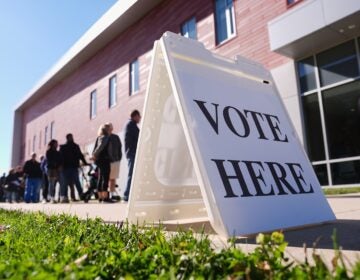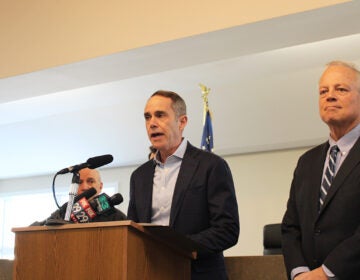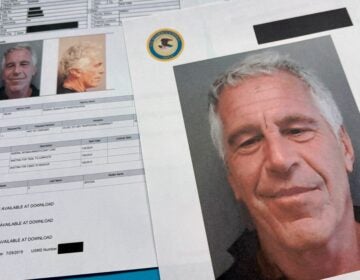A letter from wartime China reminds us things have been much, much worse
A letter from from wartime China by my aunt (my father’s older sister), who attended the Shipley School, graduated from Bryn Mawr College in 1935 and the University of Michigan Medical School in 1939, has been found and is now in archives at Mount Holyoke College with letters from other Ting relatives http://www.mtholyoke.edu/~dalbino/letters/text/ting172.html :
54 Lane 1285Avenue Joffre,Shanghai, China.June 4, 1941.
Dear friends,
It is amazing how fast time slips by and how much has happened in this chaotic world of ours during this year of my silence. I am indeed ashamed of myself for not having written to you for a whole year, but I hope you will not doubt that I have constantly wished to do so. I also wish to tell you how much I appreciate the letters you have written to me giving us news of your goodselves [sic] and our mutual friends. Even though they come at long intervals, they always give us the greatest pleasure and a sense of nearness to a friendly land where we spent many happy years.
One of you stated in her letter, ‘It would be a miracle if you are still alive!’ How true was that statement; for a miracle did happen about 10 p.m. on October 16, 1940, when our hospital had a direct hit and I was buried under the debris, but escaped any injury.
You have probably read about the devastation Chungking was subjected to last year. As soon as the fog season was over, Japanese bombers visited us on every fair weather day and rained their loads of destruction at their pleasure. For alas, we have little, or no active air defense except an inadequate number of anti-aircraft guns and still fewer combating planes. At first, we had hoped that a defenseless city with no military objectives might be spared, for in April and May only airfields and factory districts were hit. But the attack on the schools and universities at the end of May heralded a wholesale, systemic destruction that was to come to Chungking in the following months until late in the fall when the fog again drew its protective curtain upon our much battered city.
For five days at the end of May, deliberate bombings of the educational institutions were undertaken. These included the Chungking University, the Central University, Futan University, Futan Middle School (at a different location) and the East Szechuan Teachers College. On Chungking University campus alone, three hundred bombs fell These are their objectives; they cultivate our thinking youthful leaders, the backbone of our spirit of resistance. It is this fiery spirit that they try to quench with bombs; while in the occupied areas, they spread addicting drugs, gambling, and other vices to accomplish the same.
Part of the populace was soon evacuated. Those staying behind had to endure through the hot summer months the daily pounding of their homes and offices. Every time the all clear sounded, some would come out of the dugouts homeless, but if it did happen to you, despair and sadness would not enter your heart; it would only find you ready to re-establish yourself and redouble your effort to carry on your work. Fires started from hundreds of incendiary bombs of August 19th and 20th swept through the city uncontrollable, leaving at least three fourths of the business section of the city in smouldering ruins.
As one walked through the streets the next day, one had the strangest feeling of visiting an ancient, deserted city with only broken pillars and walls to remind one of its once flourishing population. Only with the greatest difficulty and the keenest imagination could one locate one’s favorite teashop or frequented silk store; for, as far as one’s eyes could see, there lay only charred wood and scattered bricks. Here or there, the owners had returned to resurrect from the debris perhaps a broken pot or two.
When the fog season came, it could be said that not one house in Chungking had been spared from damages of some sort, from complete demolition to shattered roofs or windows. But reconstruction followed very closely upon the heels of destruction. After each bombing disrupted power lines and water mains were immediately repaired; roads cleared of the debris and bomb holes filled; roofs retiled and windows papers. Business, education, and government would carry on in spite of everything. As soon as there was a lull in the raids, temporary types of buildings began to spring up, like the bamboo shoots after a shower, on the razed ground, utilizing the very bricks that had been scattered from the walls which had stood there once. So that when one walked among the crowd on New Year’s eve down the widened main streets lined with colorful shops, it required a still keener imagination to visualize its appearance after the baptism of fire. The rebuilding of Chungking serves as a symbol of our spirit of resistance. For with an inferior war machine we are bound to see our land devastated and our homes destroyed, but we will reconstruct our homes each time it is destroyed. For as long as the spirit of construction is alive, destruction is to no avail. We work to see the day when all the wanton killings and destruction will cease and peace and happiness will be the common property of all nations and people.
Throughout the summer our hospital had been fortunate in escaping severe damages. On June the twelth [sic], a large bomb exploded about twenty feet away from our front gate, blowing away part of the walls and throwing many stones through our roof, rendering my room which was then on the fourth floor unlivable. On several other occasions, the bombs dropped very close. The buildings just across the street suffered demolition one by one; but none of our buildings had been hit. One bomb came down in our court yard only five feet away from one of the buildings but did not explode. One incendiary bomb burnt with a dazzling brightness on the tennis court of the house next to us where the missionaries live, only twenty feet from the building. Some of the native people began to remark that no harm had come to us because we believe in Christianity; but that remark only lasted until October the sixteenth.
It was a moonlight night. The autumn moon shone with its usual splendor, not upon quiet gardens where one sits amid chrysanthemums and listens to the crickets, but upon a death-like city with no lights in any windows and no mortal souls stirring in the open. The thousands in Chungking sat crowded in the dug-outs breathlessly waiting for the dull explosions. So were all the patients and staffs of our hospital except two typhoid cases besides Ray and I; one patient was in delirium. Contagious cases were admitted with the understanding that they would not be taken into the dug-out, but into one corner of the basement considered to be the safest. When we saw the searchlights and heard the approaching bombers, there would have been time for us to run into the dug-out, but we were fool-hardy enough to remain in the basement. Very few bombs fell, for only three Japanese planes got into the city that night, but they came very close. Soon the buzzing of the heavy bombers and the crackling of the anti-aircrafts were covered up by a series of the whizzing of the descending bombs and the shaking explosions, following one of which I felt myself torn from Ray and thrown into the middle of the room face downward, and the house had come crashing down on me. Instinctively I had thrown up my left arm so that my head came to rest upon it thus leaving a breathing space. The dust was so thick that it was hard to breathe, especially with the heavy pressure all around me. Ray had stood close against the wall so that he was not buried underneath. With the dust and the night he could not see and his ears were deafened a little, but he soon found out what had happened to me and went out to the dug-out to call for help. I was not in the least frightened and had wished I were a strong man to have the strength to lift up the load on my back so that I could breathe better. The truth was I could not even move a hair. Within half an hour under the guidance of my voice they dug me out without a scratch to speak of, only a large bruise over my left hip bone where I was hit by a beam. I was very, very stiff for several days. The patients were in a room which was not hit and therefore uninjured. Indeed, it was a real good fortune of a misfortune! For there were only six layers of floors and ceilings on top of me; the roof of this room had not caved in nor had the walls fallen. There could have been so many ‘if’s, only one of which could change my year of silence into many years.
‘If’ I were in the adjacent rooms which we which were completely demolished.
‘If’ an incendiary fire had started nearby so that help could not get to me.
‘If’ Ray were also buried so that help might not reach us soon enough.
It is really best not to imagine the terrible things that did not happen but to be grateful for the blessings that had come to us in this world of misery.
Shortly after I wrote you last year, part of the hospital staff moved out of the city. Throughout the summer and autumn, I was in charge of the Ob. and Gyn. Departments alone taking care of ten to forty deliveries and two to four hundred outpatients a month. Often I had to rush between the delivery room and the outpatient department. Many a baby entered this world during the raids in the darkness of the dug-out. Anyway it was nice and cool inside compared with the outside temperature; for Chungking is very humid and hot during the summer. For at least two months, Ray and I slept on the fourth floor porch.
At the time of the accident, I was about five months pregnant. And at six months, a leakage in the membrane developed (dec. 4th), so that for two months, I was in bed most of the time – constantly fearing that I might lose my baby. Fortunately, the rest of the department had just moved down, so that the hospital work did not have to suffer any interruption. In view of this leakage and my small statue [sic], a cesarean section was decided upon to be performed, at the end of February if possible. But it could not wait and came on Feb. 4th, a slightly premature baby girl of five pounds. That very day we had an air-raid so that its entrance into the world had to be postponed for several hours. With my own milk and milk powder as a supplement, today at four months, she is fourteen and a half pounds, a healthy, normal infant, my miracle child of Chungking. Chungking is pronounced Chungching, ching meaning rejoicing. Ray’s father named her Ching Sung, meaning grandchild of Chungking or rejoicing in having a grandchild. He is sixty-six years old; this is his first grandchild, so you can imagine how pleased he is. We cannot decide upon an English name yet, so it is still “Baby” to us.
By the first of April, I had resumed my work at the hospital, but only for three weeks, for my father in Shanghai was kidnapped at that time and had a very dreadful experience. Ray’s parents were not well; his father is sickly and suffers from asthma and his mother was suffering from an attack of heart failure; she was ill with rheumatic fever a year and half ago which developed into a heart disease. We felt our families needed us; so at the end of April we asked for leaves of absence to visit our families. We traveled by plane to Hongkong and by boat to Shanghai with the baby to find my father safe and well and Ray’s mother improving. Ray’s family is planning to move to Shanghai; so Ray has gone to Tientsin to fetch them, while I am getting the house ready for them.
When the time comes for us to go back, we shall have to leave our baby with the family; for with the continuous bombings and the high living cost, it is impossible to raise a baby properly. Milk is a real problem; for the only thing safe is milk powder, but it sells at one hundred dollars per pound, equivalent to four quarts of milk. It is ten times the cost in Shanghai, because of the difficulty of transportation. Japan has blockaded our entire coast and forced French Indochina to close the railroad, the only road left open being the Burma Road. Munitions and many other things will have to come before such things as milk powder, therefore, the extreme shortage and exhorbitant [sic] price. To go into the high cost of living would take more pages; it is suficient to say that hunger and disease are the inevitable accompaniement [sic] of war. In free China the feeding of the troop becomes a problem; while in the occupied area, food is monopolized by the Japanese. The four or five millions in Shanghai have to depend upon rice shipped from abroad. Individual trouble seems so insignificant when we look into the fathomless darkness that the whole world with its civilization has been plunged into; we can only work towards peace and reason and justice and pray that they may come soon. With love,
Vung-Yuin [Ting] and Ray Chang
[Vung-Yuin was a niece of Me-iung Ting. Mary Jean and Abby, the two nieces that Me-iung raised, were her sisters. Some memories of Vung-Yuin from Evelyn Kay Ting: “Vung Yuin was my father’s oldest sister. Graduated from Bryn Mawr in 1935 and went to University of Michigan Medical School where she led her class until she got married – then she dropped to 3rd. She patriotically returned to China with her husband (actually, they had no choice; U.S. immigration or citizenship for Chinese was not possible at that time because of the Chinese Exclusion Act).”]
WHYY is your source for fact-based, in-depth journalism and information. As a nonprofit organization, we rely on financial support from readers like you. Please give today.




